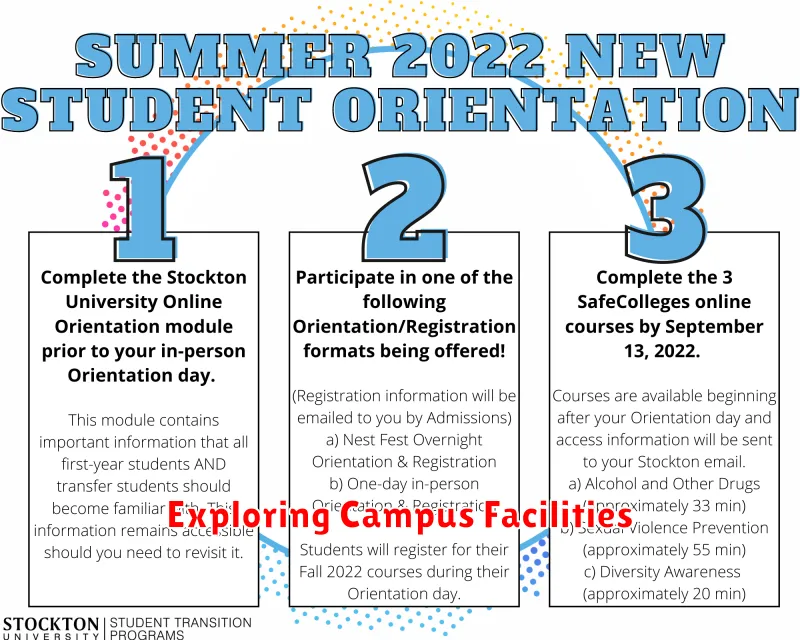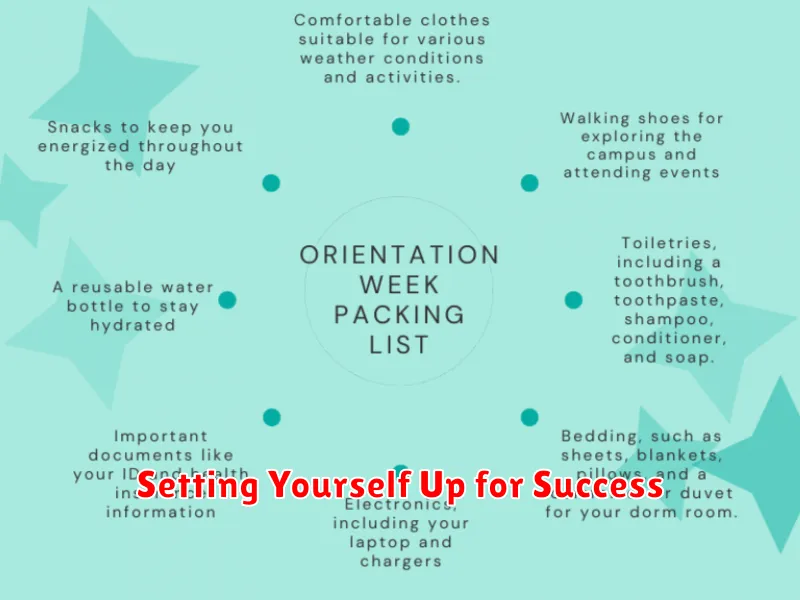Starting university is a significant milestone, and orientation is your first step towards a successful academic journey. University orientation is designed to familiarize you with the campus, resources, and academic expectations. Attending and actively participating in orientation programs can significantly impact your university experience. By understanding how to get the most out of university orientation, you can set yourself up for success from day one. This article will provide invaluable insights on maximizing your orientation experience and making a smooth transition into university life. Learning how to navigate the campus, connect with peers, and access vital resources will be crucial during this initial phase.
Successfully navigating orientation week can often feel overwhelming. From understanding degree requirements to finding the library and essential student services, there’s much to absorb. This guide will offer practical tips and strategies to help you make the most of your university orientation. You’ll learn how to effectively plan your schedule, ask the right questions, and connect with key personnel. Taking advantage of these opportunities can greatly enhance your understanding of university life and minimize the stress associated with transitioning to a new academic environment. By preparing for orientation week effectively, you’ll be empowered to start your university career with confidence and clarity.
Understanding Orientation Goals
University orientation serves several key purposes designed to help you transition smoothly into academic life. Primarily, orientation aims to familiarize you with the campus environment, including key facilities like the library, student union, and academic buildings.
Furthermore, orientation programs introduce you to essential academic resources and support services. This includes academic advising, tutoring programs, and career counseling. Understanding these resources early on is crucial for academic success.
Finally, orientation provides opportunities to connect with fellow students, faculty, and staff. Building these connections fosters a sense of community and provides a strong support network throughout your university journey.
Participating Actively in Events
Orientation offers a multitude of events designed to familiarize you with campus life. Active participation is crucial for maximizing your orientation experience. This means more than just attending; it involves engaging with the material, asking questions, and interacting with fellow attendees and staff.
Attend workshops and seminars. These sessions provide valuable information on academic resources, student support services, and campus policies. Take notes and don’t hesitate to ask clarifying questions.
Participate in social events. Orientation often includes social gatherings, mixers, and campus tours. These are excellent opportunities to connect with your peers, build your network, and discover campus resources and facilities. Engage in conversations and take the initiative to meet new people.
Meeting New Friends Early
Orientation is a prime opportunity to forge new connections. Starting early can ease the transition into university life. Don’t be afraid to initiate conversations. A simple “Hi, I’m [Your Name]” can go a long way.
Take advantage of icebreaker activities and social events. These are designed to help students mingle and find common ground. Actively participate and engage with your peers.
Exchange contact information with people you connect with. This allows you to continue building those relationships beyond orientation.
Exploring Campus Facilities

Orientation often includes tours or designated times for exploring campus facilities. Take advantage of these opportunities. Familiarizing yourself with key locations like the library, student union, academic buildings, and administrative offices will make your transition to university life smoother.
Don’t be afraid to ask questions. Orientation staff and student volunteers are there to help you. Inquire about specific resources, such as computer labs, study areas, or athletic facilities. Knowing where these resources are located will save you valuable time and effort throughout the semester.
Pick up maps and informational brochures. These resources can serve as handy guides throughout your first few weeks. They can be especially helpful in navigating large or complex campuses.
Attending Informational Sessions
Informational sessions are a cornerstone of university orientation. They provide essential details about academics, student services, and campus life. Attending these sessions is crucial for a successful transition to university.
Plan your schedule. Review the orientation schedule carefully and identify the sessions most relevant to your needs and interests. Some sessions may be mandatory, while others are optional. Prioritize accordingly.
Active listening and note-taking are key to retaining information. Come prepared with a notebook or use a note-taking app on your device. Don’t hesitate to ask questions for clarification.
Connecting with Faculty and Advisors
Orientation is a prime opportunity to connect with faculty and advisors. Faculty in your department can offer invaluable insights into courses, research opportunities, and career paths. Don’t hesitate to approach them during introductory sessions or departmental events.
Academic advisors play a crucial role in guiding your academic journey. They can help you choose courses, understand degree requirements, and navigate university resources. Schedule a meeting with your advisor to discuss your academic goals and build a strong foundation for success.
Learning About Student Organizations
Orientation is a prime opportunity to discover the diverse range of student organizations available on campus. Active involvement in these groups can enrich your university experience academically, socially, and professionally.
Take advantage of the student organization fair or any sessions dedicated to showcasing these groups. This is your chance to gather information, speak with current members, and find organizations that align with your interests.
Don’t be afraid to ask questions. Inquire about meeting schedules, membership requirements, and the types of activities the organization participates in. This will help you determine which groups are the right fit for you.
Asking Questions Confidently
Orientation can feel overwhelming. Don’t hesitate to ask questions. It’s the best way to gather the information you need to succeed.
Preparation is key. Before attending sessions, jot down any questions that come to mind. This will help you stay organized and ensure you address all your concerns.
During presentations, don’t be afraid to raise your hand. If something is unclear, chances are others are wondering the same thing. Speaking up helps everyone.
If a question feels too personal or complex for a large group setting, approach presenters afterward. They are there to support you and provide individualized guidance.
Keeping Track of Important Information
University orientation can feel like an information overload. Effective note-taking is crucial for retaining key details. Bring a notebook and pen, or use a note-taking app on your tablet or laptop.
Organize your materials. Create a dedicated folder, physical or digital, for orientation handouts, schedules, and contact information. This will prevent important documents from getting lost in the shuffle.
Don’t hesitate to ask questions. If something is unclear, ask orientation leaders or staff for clarification. It’s better to ask now than to be confused later.
Setting Yourself Up for Success

Orientation is more than just welcome events. It’s a critical time to lay the groundwork for a successful university experience. Take the time to familiarize yourself with campus resources. Knowing where to find academic advising, the library, and student support services will prove invaluable throughout your studies.
Proactively connect with your academic advisor to discuss your course selection and ensure you are on the right path towards your degree requirements. This is also an ideal opportunity to explore potential research opportunities or internships that align with your academic goals.
Don’t underestimate the power of connecting with fellow students. Orientation provides a unique environment to build your network. These connections can provide essential academic and social support throughout your university journey.

